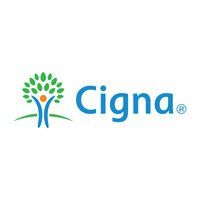How Depression Causes Brain Fog and What to Do About It
If you ever feel like your brain is in a fog, you're not alone. Many people with depression report feeling like their thinking is fuzzy or slow. This mental fuzziness (brain fog) can make it hard to concentrate, remember things, or make decisions.
Brain fog is not a medication condition but often signifies an underlying issue such as depression. Other conditions, such as anxiety, stress, and lack of sleep, can also cause it. If you're struggling with brain fog, there are things you can do to clear the cobwebs and get your thinking back on track.
What is Brain Fog?
Brain fog describes feelings of confusion, forgetfulness, and mental fatigue. If you experience brain fog, you may feel like your thoughts are slowed down or jumbled. You may have difficulty concentrating or find it hard to remember things. Brain fog can make it difficult to think clearly or make decisions. It can also cause you to take longer than normal to complete tasks.
What Does Depression-Related Brain Fog Feel Like?
For some people, brain fog is a temporary condition that comes and goes depending on certain life situations and factors like stress. For others, it's a chronic problem that makes everyday life challenging.
Depression is one of the most common causes of chronic brain fog. People with depression often describe their experience with brain fog as feeling like they're in a dream or walking through life in a daze. And among other aggravating physical symptoms of depression, they are likely to experience brain fog-related headaches.
Beyond an impaired ability to think clearly or concentrate, brain fog can make getting motivated particularly difficult for someone with depression who already experiences little interest in doing things.
How Depression Makes Brain Fog Worse
With depression-related brain fog, feelings of disorientation and fatigue are often exacerbated by sleep-related problems. For instance, a lack of sleep can compromise your brain's ability to filter and consolidate memories.
In other words, your brain doesn't just feel foggy because you are mentally exhausted; brain fog is the feeling of your memory and mental functioning suffering, contributing to confusion and other brain fog symptoms.
Depression can also worsen brain fog by affecting how the brain processes information while awake. When someone is depressed, they tend to experience negative thinking patterns, which can further impact cognitive function.
How TMS Therapy and Ketamine Can Help Combat Brain Fog
While there is no one-size-fits-all solution for depression or brain fog, certain treatments can help.
Ketamine therapy is a relatively new treatment that has shown promise in treating depression when used in low doses. Ketamine targets levels of glutamate, a neurotransmitter that plays a significant role in mood, learning, and memory.
TMS (transcranial magnetic stimulation) is another promising and effective treatment for depression that can help improve brain function. Using magnetic pulses, TMS stimulates parts of the brain involved in mood regulation and cognitive function.
Find Clarity and Renewed Focus at the NC Institute of Advanced NueroHealth!
Knowing where to turn when your mind is stuck in a fog can be difficult. The NC Institute of Advanced NeuroHealth in Apex is here to help you find renewed focus and hope.
Overcoming brain fog starts with treating your depression. Our team of Neurotherapy experts will work with you to create a personalized TMS or Ketamine therapy treatment plan that meets your unique needs.
Schedule a free consultation today. It's time to start feeling like yourself again!





















